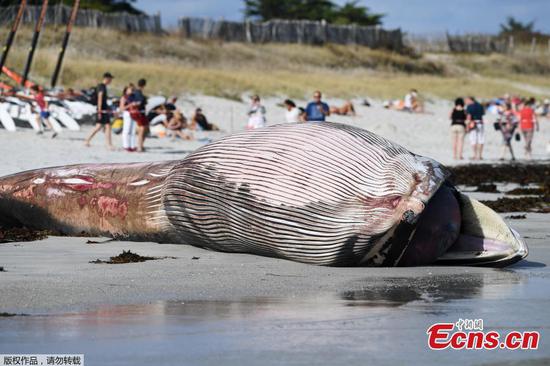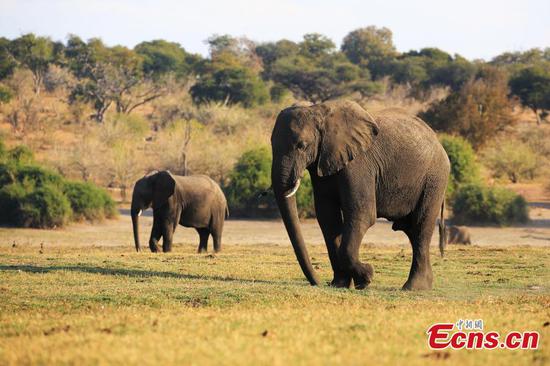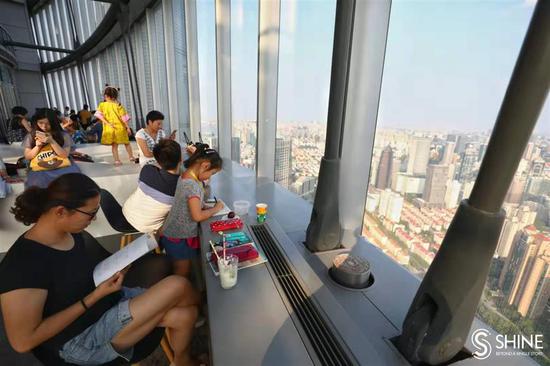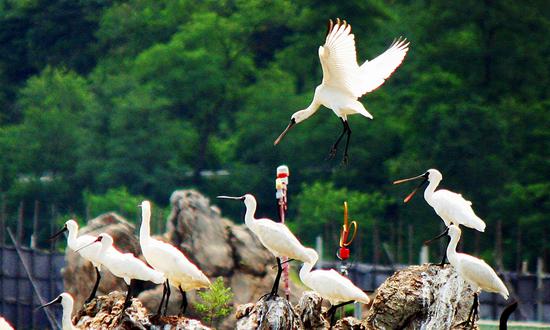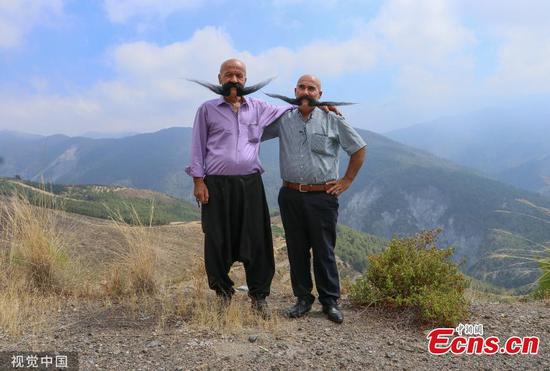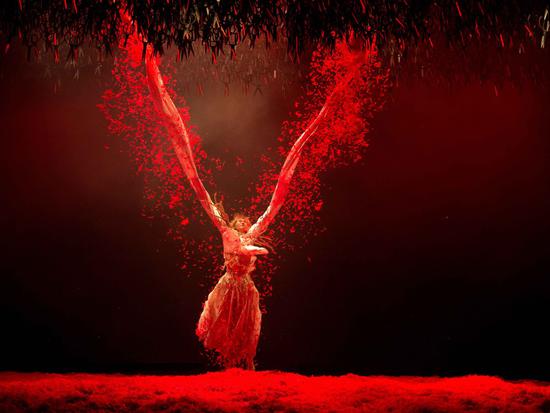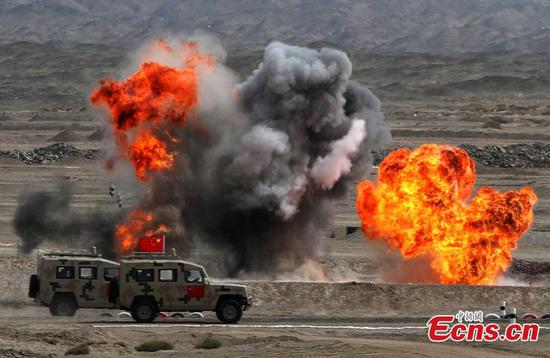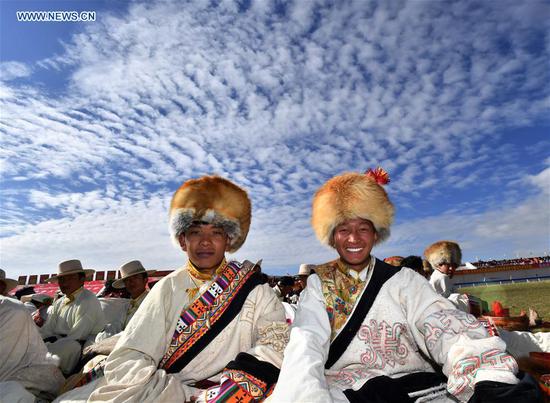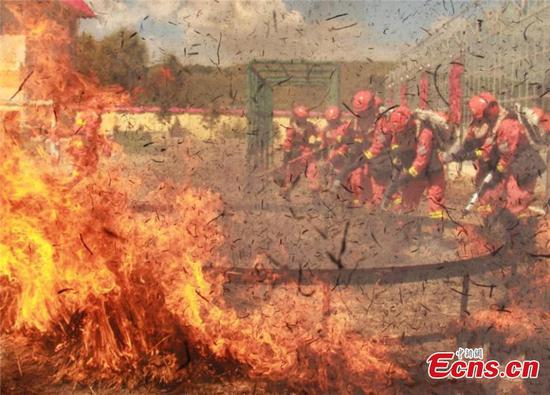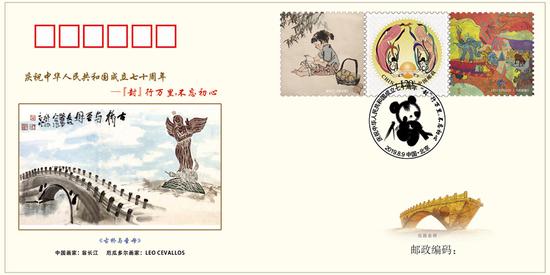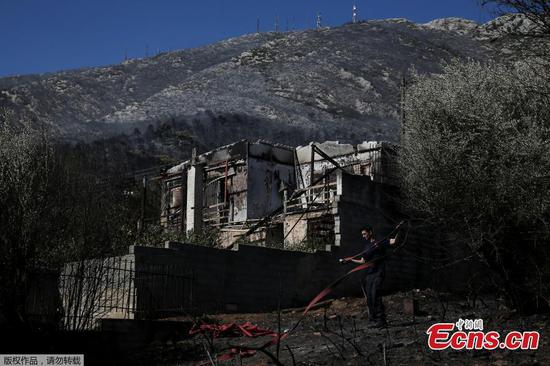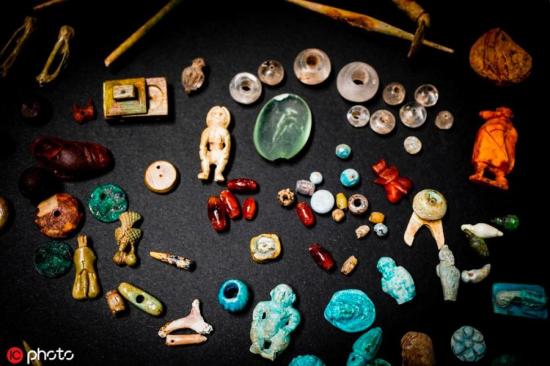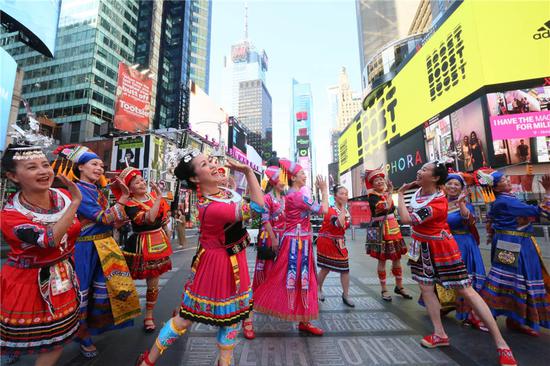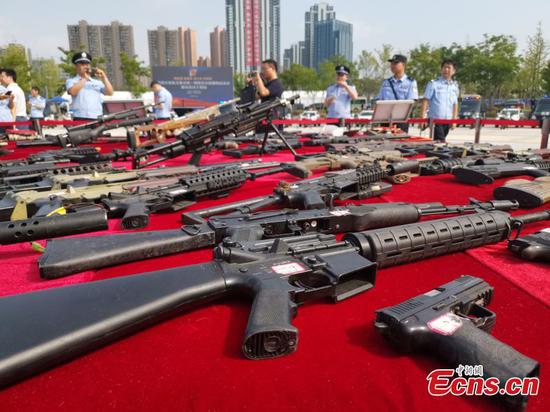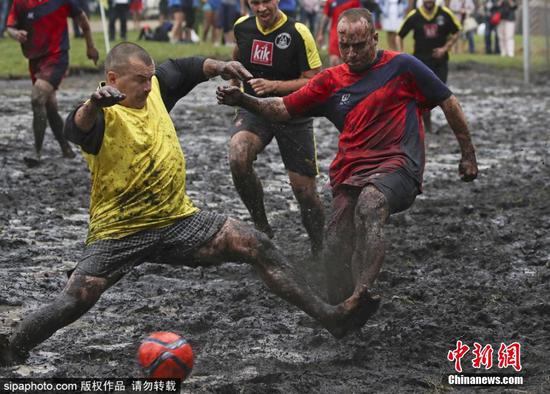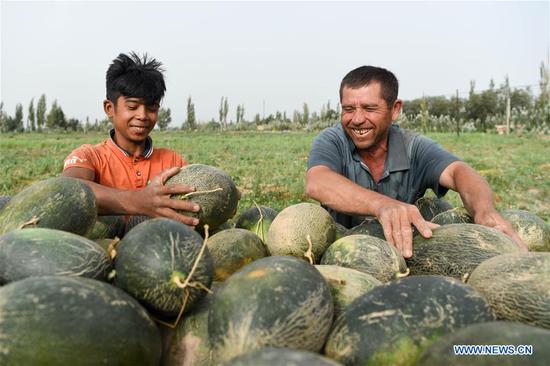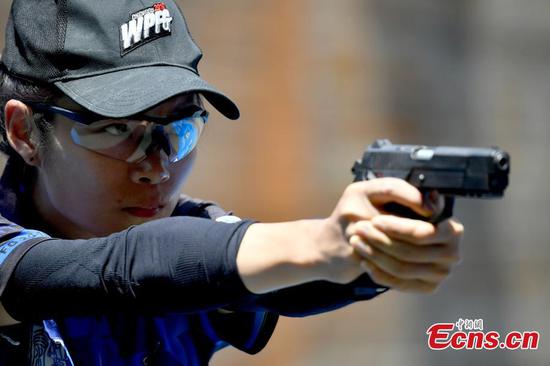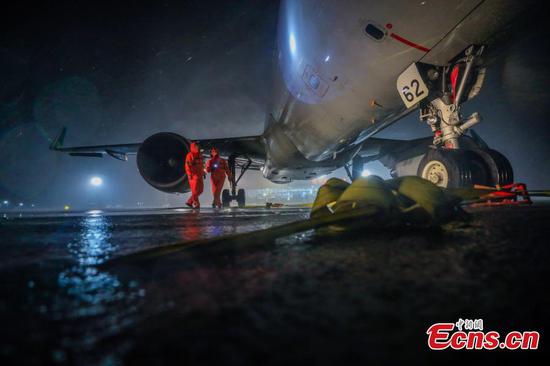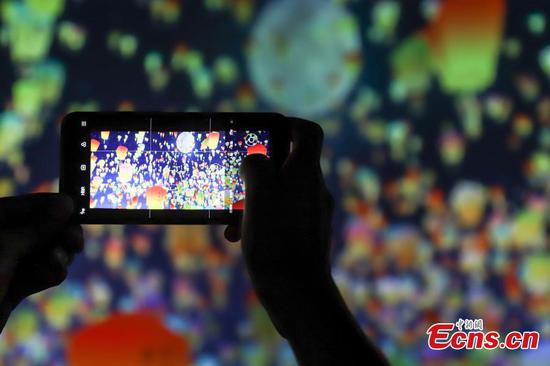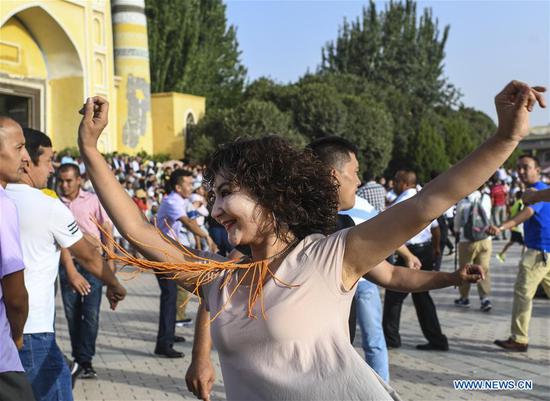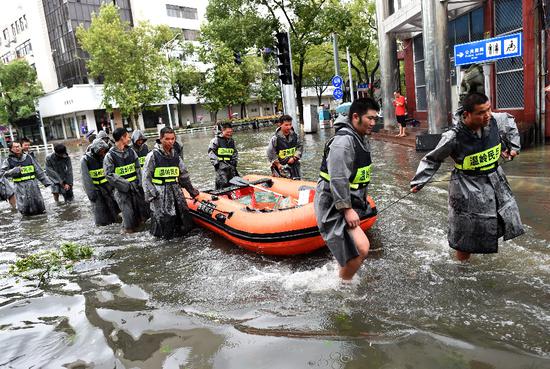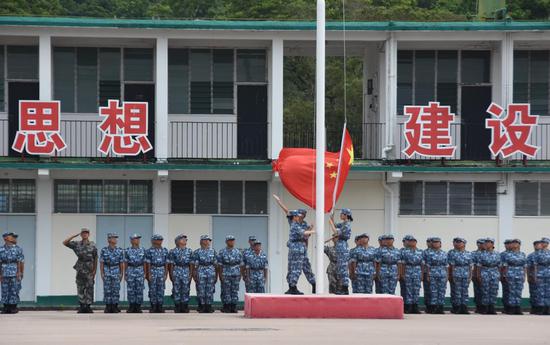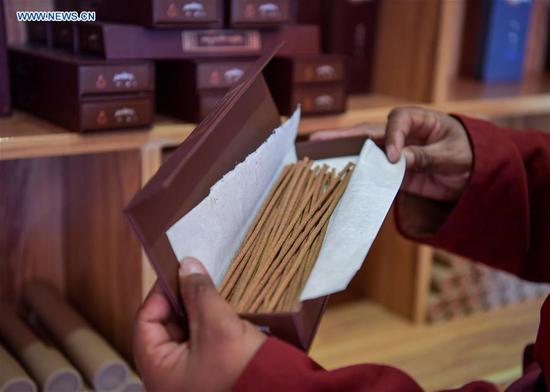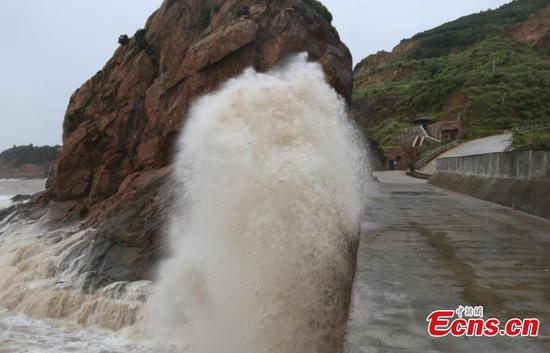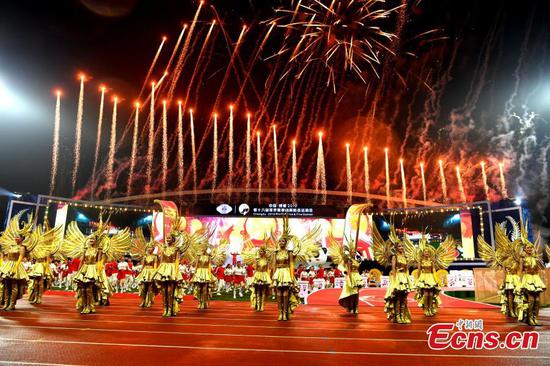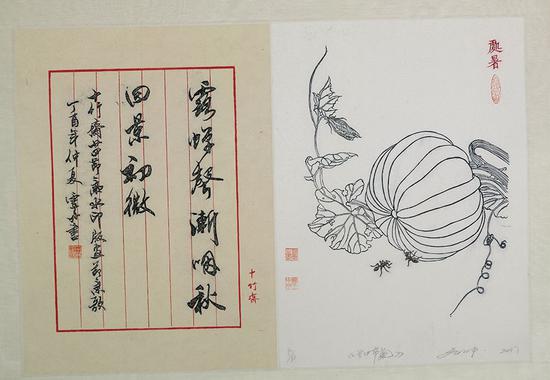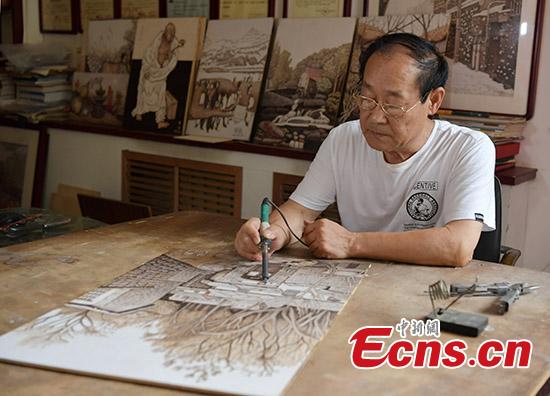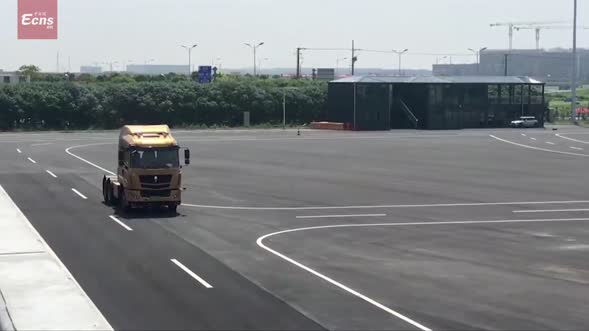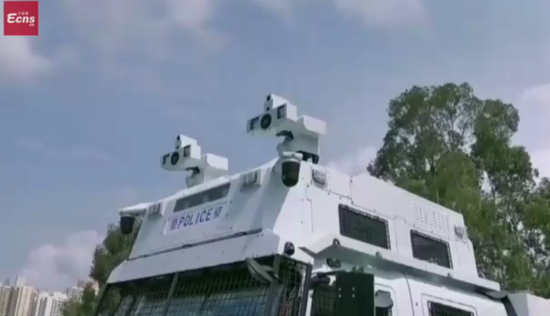Escalating violence resembles color revolution feature: expert
Hong Kong airport was seriously disrupted again on Tuesday by illegal assemblies as all check-in services for departing flights were suspended after 4:30 pm as announced by airport authorities.
Other departure and arrival flights for the rest of the day will continue to operate, Hong Kong International Airport said in a notice sent to the Global Times on Tuesday.
One day of paralysis costs the airport roughly 206,000 passenger counts and air cargo worth 10.1 billion yuan ($1.4 billion), according to media reports. The airport - one of the world's busiest transit hubs - contributes to 5 percent of Hong Kong's GDP, Hong Kong Transport Secretary Frank Chan said in May.
Asked why the airport permitted the illegal assembly to paralyze the operations of the airport for two consecutive days, a spokesperson for Airport Authority Hong Kong refused to comment.
The chaos on Tuesday followed the cancelation of the remaining inbound and outbound flights after 4 pm on Monday.
Airport Authority Hong Kong on Monday canceled the day's remaining flights after thousands of protesters swarmed the main terminal building for a fourth day, the biggest disruption yet to the major aviation hub since demonstrations began in early June.
Returning to the airport on Tuesday, hundreds of s sat in the departure area of the airport, making it hard for travelers to walk through to the security check.
Near the boarding area, protesters lined up trolleys as a barricade to block travelers.
Some protesters suggested that each person take a trolley, leaving none for ordinary travelers.
A passenger from the Chinese mainland surnamed Tan told the Global Times at the airport Tuesday that he could not make it to the security check due to the congestion caused by the protesters, and that he felt "very annoyed."
The passenger, who was transferring from Hong Kong to Europe, said, "I tried to convince them to make way but they were indifferent."
Another Australian passenger confronted protesters on Monday, saying it was recognized worldwide that Hong Kong and Taiwan are parts of China.
The passenger asked protesters to find a job instead of staying in the airport and disrupting other people's travels.
An elderly couple, who told reporters they were from New Zealand, shook their heads as protesters tried to explain to them why they were demonstrating.
Faced with a cancellation, the wife said, "I cannot understand your stance, which only makes us hate Hong Kong and I won't transfer from Hong Kong anymore."
Before the airport announcement, passengers waited in the boarding area where many airline counters appeared to be shut down.
Choi Koon-shum, chairman of the Chinese General Chamber of Commerce, Hong Kong, told the Global Times that "illegal assemblies have now spread to such an important transit hub as the airport. As an international financial and trade center, this will have a profound impact on Hong Kong's image and reputation on a global scale."
As more flights are cancelled, investors will question whether the city is still ruled by law, Choi said.
Observers also questioned if the airport authorities have carried out effective measures to deal with the radical protesters.
Color revolution signs
The airport paralysis follows obstruction of public transport and escalating violence in the city over the past weeks involving bricks, stones, steel balls, daggers, hammers and other lethal weapons used to attack police officers. Hong Kong Chief Executive Carrie Lam Cheng Yuet-ngor said Tuesday that Hong Kong has been "seriously wounded" and asked the public if they are "hardhearted enough to push the city into the abyss of destruction."
The Hong Kong and Macao Affairs Office of the State Council condemned "the mob's behavior" on Monday and said their violent actions showed "signs of terrorism."
Chinese observers said the evolution of Hong Kong's protests showed a clear roadmap that resembles the pattern of a color revolution.
The protests aim to completely paralyze the region's government and police, force the central government to give up control over Hong Kong to Western forces, they said.
The feature of a color revolution is to instigate street protests, disrupt social order with violence and paralyze society in the short term, Fan Peng, a member of the Chinese Association of Hong Kong &Macao Studies, told the Global Times on Tuesday.
Other countries and regions, including the US and the island of Taiwan, played an important role in Hong Kong's chaotic situation, according to Fan.
Western politicians also constantly issue irresponsible and groundless comments on Hong Kong's affairs, Zhang Dinghuai, a professor at the Center for Basic Laws of Hong Kong and Macao Special Administrative Region of Shenzhen University, told the Global Times.
"Protesters are counting on Western countries to help," Zhang said.
"But those countries are not going to pay for Hong Kong's loss. They are more than happy to see Hong Kong and the Chinese mainland suffer when the situation deteriorates," said Zhang.
A spokesperson for the Office of the Commissioner of China's Ministry of Foreign Affairsin Hong Kong Special Administrative Region (HKSAR) on Tuesday expressed strong discontent and objection to a statement by US Senate Republican leader Mitch McConnell.
McConnell warned China that any violent crackdown on protests in Hong Kong would be "completely unacceptable."
The senator ignores facts, confounds right and wrong, groundlessly smears the Chinese government and the government of the HKSAR and sends wrong signals to Hong Kong radical protesters, the spokesperson said.
Hong Kong is China's and Hong Kong's affairs are China's internal affairs, said the spokesperson. Any country, organization and individual is not allowed to interfere in Hong Kong's affairs and China's determination to safeguard national sovereignty and Hong Kong's prosperity and stability should not be undermined.









